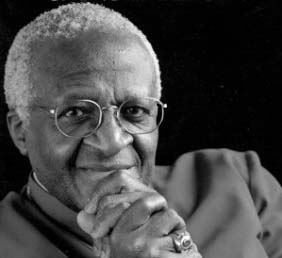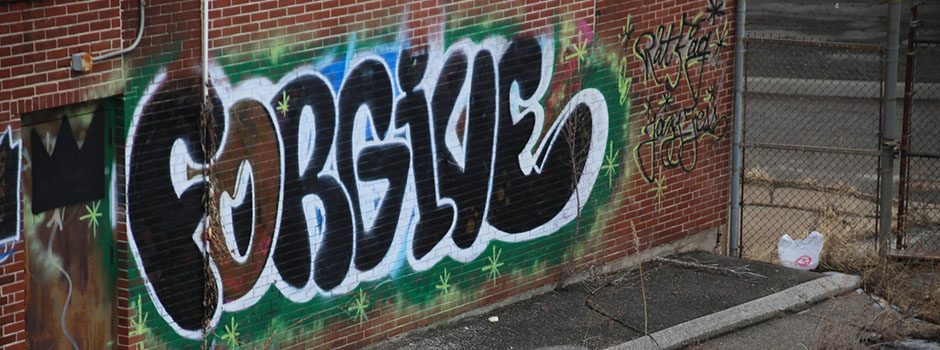If you wish, you can hear this sermon as it was preached in the pulpit of the United Church of Jaffrey. Simply click to the play button below.
Delivered to the United Church of Jaffrey
Jaffrey New Hampshire
April 8, 2018
John 20:19-23 | An Excerpt from “Why We Forgive” by Desmond Tutu
 If I slap you after you slap me, it does not lessen the sting I feel on my own face, nor does it diminish my sadness as to the fact you have struck me. Retaliation gives, at best, only momentary respite from our emotional pain. The only way to experience healing and peace is to forgive. Until we can forgive, we remain locked in our pain and locked out of the possibility of experiencing healing and freedom, locked out of the possibility of being at peace.
If I slap you after you slap me, it does not lessen the sting I feel on my own face, nor does it diminish my sadness as to the fact you have struck me. Retaliation gives, at best, only momentary respite from our emotional pain. The only way to experience healing and peace is to forgive. Until we can forgive, we remain locked in our pain and locked out of the possibility of experiencing healing and freedom, locked out of the possibility of being at peace.
Without forgiveness, we remain tethered to the person who harmed us. We are bound with chains of bitterness, tied together, trapped. Until we can forgive the person who harmed us, that person will hold the keys to our happiness; that person will be our jailor.
When we forgive, we take back control of our own fate and our feelings. We become our own liberators. Forgiveness, in other words, is the best form of self-interest. This is true both spiritually and scientifically. We don’t forgive to help the other person. We don’t forgive for others. We forgive for ourselves. — Desmond Tutu
What is Forgiveness?
Forgiveness.
We Christian’s often speak of forgiveness.
When we offer prayers of confession, we ask for forgiveness.
We ask God to forgive us.
But what is forgiveness?
Let’s get down to basics — the stuff we all know.
Let’s say you’ve done something bad to me… (I’m not saying you have — this is all hypothetical, you understand)…
Anyway, let’s say you’ve given the whole thing some thought, and you feel bad about what you’ve done.
Is there anything that can be done about it?
It turns out there is something you can do about it.
You can ask you ask for my forgiveness.
In this case, I have the power of forgiveness, and I can decide whether or not to give it to you.
The same thing is true the other direction.
If I have done something bad to you, and I feel bad about it, I can ask for your forgiveness.
And in this case, of course, the power dynamic is reversed, and it’s up to you to decide whether or not to forgive me.
In either scenario, it is the wronged party who has the power of forgiveness…
Isn’t that interesting?
This is pretty basic stuff, but there is a profound spiritual truth hiding here in plain sight.
Usually, when power is applied in a relationship, we assume that the person who wielding the power is the assertive, aggressive, person.
And in most cases we would be correct —
the Bully has the power to beat up the wimpy kid on the playground…
The person with the AR-15 has the power to shoot the unarmed person…
The country with the biggest military has the power to destroy the country with a smaller military…
In the normal order of things, power follows strength.
But in the case of forgiveness, it is not the aggressor who has the power.
In the case of forgiveness, it is the person who has been wronged — the vulnerable person — the person who has been hurt — who is in the position of power.
So, when you think about it, forgiveness takes the normal order of things and flips it on its head.
In the case of forgiveness, power follows something else.
What is it?
If it’s not strength..is it the opposite? Is it weakness?
I don’t think so… Not exactly…
But forgiveness follows something.
Perhaps Jesus can help us figure this out.
God’s Message
Turning our attention to the reading from the gospel of John that Sarah jus read for us, we find the risen Christ in company with his disciples. The text says that he…
breathed on his disciples, and said to them, “Receive the Holy Spirit. If you forgive the sins of any, they are forgiven them; if you retain the sins of any, they are retained.”
When I read these words, I am immediately aware that the word “forgiveness” has a different sound to it when it appears in the Bible.
This is not the garden variety forgiveness that is we are called upon to give for minor infractions like eating the last plum in the icebox, as we see in the poem by William Carlos Williams in today’s Poetry Corner.
Let us remember that, at the critical junctures in the life of Jesus Christ, forgiveness appears as a central concern.
Remember when John the Baptist appears to foretell the appearance of the Messiah? He proclaims to the people of Jerusalem “a baptism of repentance for the forgiveness of sins” (Mark 1:4).
Remember the Parable of the Prodigal Son? In one of his most memorable parables Christ tells the story of a child, forgiven by his father.
And do you remember this?
Even as he is in the very act of dying a brutal death by crucifixion, Christ he cries out: “Father, forgive them; for they do not know what they are doing.”
Today’s reading, from the Gospel of John, brings this emphasis on forgiveness to yet a higher dimension of concern — because now, even after his resurrection from death, Christ still emphasizes the central concern:
Forgiveness.
Remembering all this, leads us to an interesting observation.
We just got done establishing, quite logically I think, that the power of forgiveness differs from other kinds of power because it does not lie in the hands of the powerful.
Forgiveness is a power that is in the hands of the wronged…
The vulnerable, the hurt, the broken.
From the Most Powerful comes…
If this is the case, how do we account for the gospels?
What are we to think when our tradition tells us that the ultimate power in the universe — the God who lit the stars at the farthest reaches of the universe, knit us in our mother’s wombs, and gave us all the saints and prophets — that this most powerful Divinity chose to come to us, and walk with us in this world for the forgiveness of sins.
Isn’t that amazing?
That power that has no equal in the universe, wanted to teach us about a particular kind of power…
What kind of power was it?
Did God come to teach us how to be Tyrants?
No.
Did God come to teach us how to build a nuclear bomb?
No.
Did God come to teach how to build a wall?
No.
Our religious tradition teaches us that the one time in history when God chose to become human and share our common lot — God did so not to force us to believe, or even coerce us to be obedient.
God, whose power fills in the universe, came to us to teach us to forgive.
To forgive!
And need I remind you of how God taught us how to forgive? In his letter to the Philippians, Paul reminds us that, though Jesus was in the form of God, he…
…emptied himself,
taking the form of a slave,
being born in human likeness.
And being found in human form,
he humbled himself
and became obedient to the point of death—
even death on a cross.
But why?
Why would God go to the cross to teach us about forgiveness?
Why is forgiveness so important?
Or, to return to the question that we turned to Jesus to help us answer…
What does forgiveness follow?
If power follows strength, what does forgiveness follow?
Remember when Jesus was nailed to the tree?
Remember what he cried out with his last breath?
“Father, forgive them; he cried, for they do not know what they are doing.”
Forgiveness follows something far greater than mere strength.
It follows truth.
It calls us to be honest.
Bullets may wound us.
Walls may imprison or exclude us.
Bombs may kill us.
But these brutish flailings will never bring love and justice to the world.
These are the easy ways out.
They are the ways of bullies and tyrants.
But if we are Christians, these ways — the ways of bullies and tyrants, are not our ways…
We remember the way that Jesus taught…
The hard way —
the way of discipleship —
the way of the cross —
This Is the way of forgiveness
The way that follows love.
Amen.

